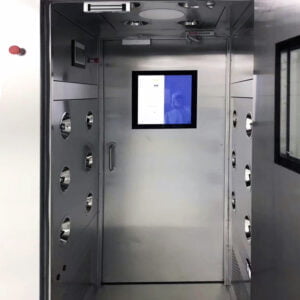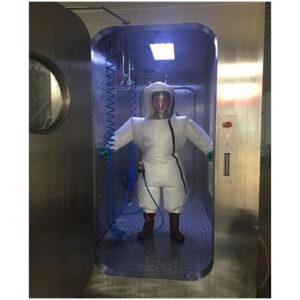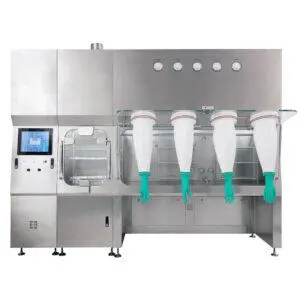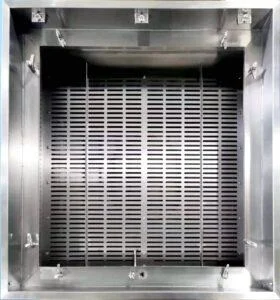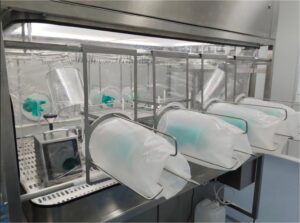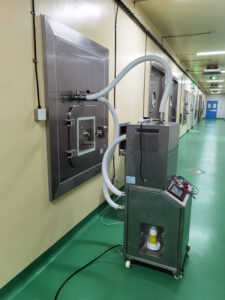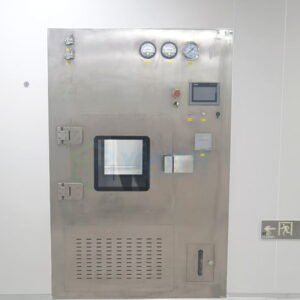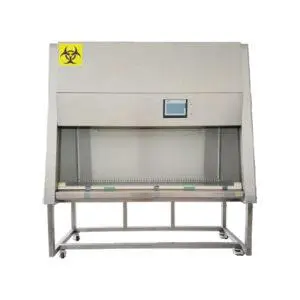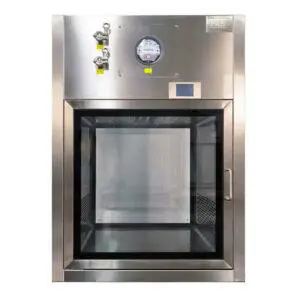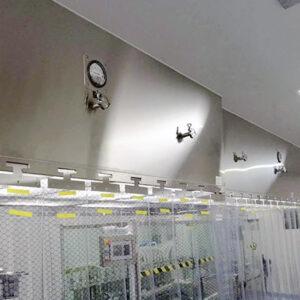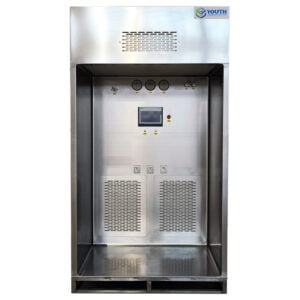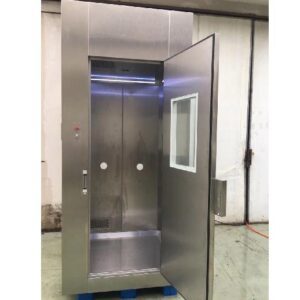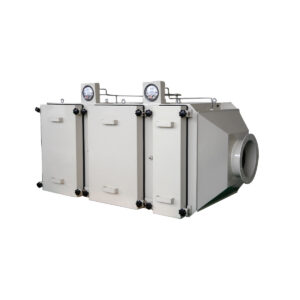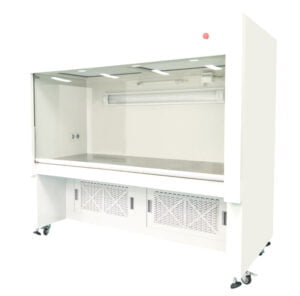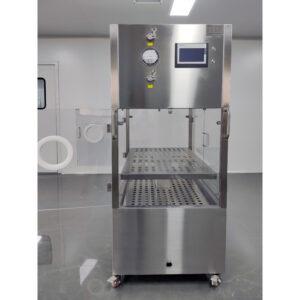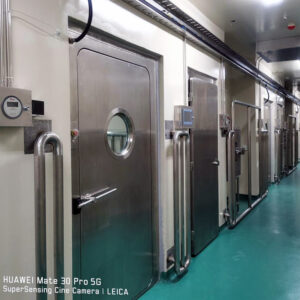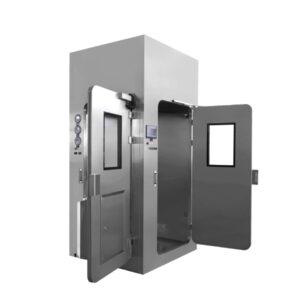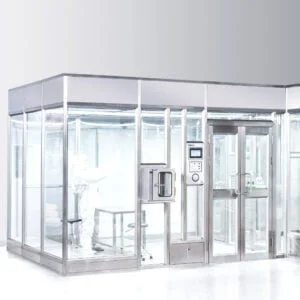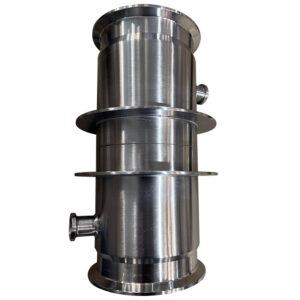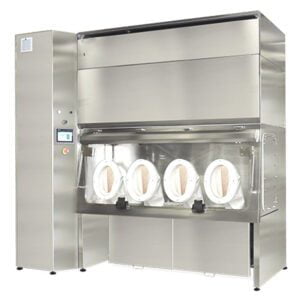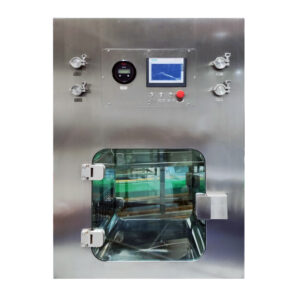The field of biologics manufacturing is experiencing a revolutionary transformation, driven by cutting-edge BIBO (Boston Institute of Biotechnology) technology. This groundbreaking approach is reshaping the landscape of biopharmaceutical production, offering unprecedented efficiency, scalability, and cost-effectiveness. As the industry grapples with increasing demand for complex biologics, BIBO technology emerges as a beacon of innovation, promising to accelerate drug development and improve patient access to life-saving therapies.
In this article, we'll explore the latest advancements in BIBO technology, including ultra-large bioreactors, the Grand-CHO platform, and Pulse Continuous Manufacturing (PCM). We'll delve into how these innovations are addressing longstanding challenges in biologics production, such as scalability, process efficiency, and manufacturing costs. From the development of a 30,000L bioreactor to the integration of advanced cell line technologies, BIBO is at the forefront of what industry experts are calling the "Fourth Revolutionary Wave of Biologics Manufacturing."
As we transition into the main content, it's crucial to understand that BIBO technology represents more than just incremental improvements. It signifies a paradigm shift in how we approach the production of complex biological molecules, with far-reaching implications for drug development, healthcare economics, and patient outcomes.
"BIBO technology is not just an evolution, but a revolution in biologics manufacturing. It has the potential to reduce production costs by up to 80% while significantly increasing output, marking a new era in biopharmaceutical production."
The Rise of Ultra-Large Bioreactors: A Game-Changer?
The development of ultra-large bioreactors, particularly the 30,000L bioreactor by the Boston Institute of Biotechnology, marks a significant leap forward in biologics manufacturing. This innovation addresses one of the most persistent challenges in the industry: scalability. By dramatically increasing production capacity, these bioreactors promise to meet the growing global demand for biologics more efficiently than ever before.
Ultra-large bioreactors offer several key advantages, including economies of scale, reduced production costs, and increased output. However, they also present unique challenges in terms of process control, contamination risks, and operational complexity.
The introduction of these massive bioreactors is not just about size; it's about reimagining the entire production process. Engineers and scientists have had to develop new approaches to cell culture, nutrient delivery, and product harvesting to ensure optimal performance at this unprecedented scale.
"The 30,000L bioreactor developed by BIBO represents a 300% increase in capacity compared to traditional large-scale bioreactors, potentially revolutionizing the production of monoclonal antibodies and other biologics."
| Feature | Traditional Bioreactors | BIBO 30,000L Bioreactor |
|---|---|---|
| Capacity | Up to 10,000L | 30,000L |
| Production Cost | Baseline | Up to 80% reduction |
| Scalability | Limited | Highly scalable |
| Process Complexity | Moderate | High (but optimized) |
Grand-CHO Platform: The Next Evolution in Cell Line Technology?
The Grand-CHO platform developed by BiBo Pharma represents a significant advancement in cell line technology for biologics production. This innovative platform combines high-performing Chinese Hamster Ovary (CHO) cell lines with optimized culture conditions and process parameters to achieve unprecedented levels of productivity and product quality.
The Grand-CHO platform addresses several key challenges in biologics manufacturing, including cell line stability, protein yield, and product consistency. By leveraging advanced genetic engineering techniques and sophisticated media formulations, this platform enables the production of complex biologics with greater efficiency and reliability.
One of the most impressive aspects of the Grand-CHO platform is its ability to significantly reduce the time and cost associated with cell line development and process optimization. This acceleration of the early stages of drug development has the potential to bring new therapies to patients faster and at a lower cost.
"The Grand-CHO platform has demonstrated the ability to increase protein yield by up to 10-fold compared to traditional CHO cell lines, while maintaining or improving product quality attributes."
| Parameter | Traditional CHO | Grand-CHO Platform |
|---|---|---|
| Protein Yield | Baseline | Up to 10x increase |
| Cell Line Development Time | 6-12 months | 3-6 months |
| Process Optimization | Extensive | Streamlined |
| Product Quality | Variable | Consistent |
Pulse Continuous Manufacturing (PCM): A New Paradigm for Biologics Production?
Pulse Continuous Manufacturing (PCM) represents a paradigm shift in biologics production, moving away from traditional batch processing towards a more efficient and flexible continuous manufacturing model. Developed by BiBo Pharma, PCM addresses many of the limitations associated with batch production, offering improved process control, reduced variability, and increased operational efficiency.
PCM integrates various unit operations into a seamless, continuous process flow. This approach allows for real-time monitoring and adjustment of process parameters, resulting in more consistent product quality and reduced batch-to-batch variability. Additionally, the continuous nature of PCM enables more efficient use of resources, reducing manufacturing footprint and energy consumption.
One of the most significant advantages of PCM is its scalability. The system can be easily scaled up or down to meet changing production demands, providing manufacturers with unprecedented flexibility in responding to market needs.
"Pulse Continuous Manufacturing has demonstrated the potential to reduce manufacturing costs by up to 50% while increasing production capacity by 200% compared to traditional batch processing methods."
| Aspect | Batch Processing | Pulse Continuous Manufacturing |
|---|---|---|
| Process Control | Periodic | Continuous |
| Scalability | Limited | Highly flexible |
| Resource Efficiency | Moderate | High |
| Product Consistency | Variable | Improved |
PanFlex®-Engineering: The Future of Flexible Biomanufacturing?
PanFlex®-Engineering, another innovation from BiBo Pharma, represents a significant step forward in flexible and modular biomanufacturing. This system combines advanced process engineering with adaptable manufacturing platforms to create highly efficient and reconfigurable production facilities.
The PanFlex® system allows for rapid setup and modification of manufacturing processes, enabling producers to quickly adapt to changing product demands or switch between different biologics production lines. This flexibility is particularly valuable in an industry where product portfolios are constantly evolving and the ability to respond quickly to market needs is crucial.
One of the key advantages of PanFlex®-Engineering is its potential to reduce capital expenditure and time-to-market for new biologics. By leveraging standardized, pre-validated modules, manufacturers can significantly reduce the time and cost associated with facility design, construction, and validation.
"PanFlex®-Engineering has demonstrated the ability to reduce facility construction time by up to 50% and capital expenditure by up to 30% compared to traditional biomanufacturing facility designs."
| Feature | Traditional Facility | PanFlex®-Engineering |
|---|---|---|
| Construction Time | 3-5 years | 1.5-2.5 years |
| Capital Expenditure | Baseline | Up to 30% reduction |
| Flexibility | Limited | Highly adaptable |
| Validation Time | Extended | Reduced |
Integration of AI and Machine Learning: The Next Frontier in BIBO Technology?
The integration of Artificial Intelligence (AI) and Machine Learning (ML) into BIBO technology represents the next frontier in biologics manufacturing. These advanced computational tools have the potential to optimize every aspect of the production process, from cell line development to process control and quality assurance.
AI and ML algorithms can analyze vast amounts of data from bioreactors, cell cultures, and quality control tests to identify patterns and relationships that may not be apparent to human operators. This capability enables more precise process control, predictive maintenance, and early detection of potential issues.
Furthermore, AI-driven modeling and simulation tools can accelerate process development by predicting the outcomes of different manufacturing scenarios, reducing the need for time-consuming and costly experimental runs.
"The integration of AI and ML into BIBO technology has the potential to improve process yields by up to 25% and reduce process development timelines by up to 40% compared to traditional methods."
| Application | Traditional Approach | AI/ML-Enhanced BIBO |
|---|---|---|
| Process Optimization | Manual, iterative | Predictive, data-driven |
| Quality Control | Reactive | Proactive, real-time |
| Process Development | Time-intensive | Accelerated |
| Yield Improvement | Incremental | Significant |
Sustainability in BIBO Technology: How Green is the Future of Biologics Manufacturing?
As the biopharmaceutical industry faces increasing pressure to reduce its environmental footprint, BIBO technology is at the forefront of developing more sustainable manufacturing processes. From reduced water and energy consumption to minimized waste generation, the advancements in BIBO technology are aligned with global sustainability goals.
The ultra-large bioreactors and continuous manufacturing processes developed by BIBO significantly improve resource efficiency compared to traditional batch processing. These systems require less energy per unit of product and generate less waste, contributing to a more sustainable production model.
Moreover, the flexibility offered by systems like PanFlex®-Engineering allows for more efficient use of manufacturing space and resources, potentially reducing the overall environmental impact of biopharmaceutical production facilities.
"BIBO technology has demonstrated the potential to reduce water consumption by up to 50% and energy use by up to 30% compared to traditional biologics manufacturing processes, while also minimizing waste generation."
| Sustainability Metric | Traditional Manufacturing | BIBO Technology |
|---|---|---|
| Water Consumption | Baseline | Up to 50% reduction |
| Energy Use | Baseline | Up to 30% reduction |
| Waste Generation | Significant | Minimized |
| Resource Efficiency | Moderate | High |
The Economic Impact of BIBO Technology: Redefining the Cost Structure of Biologics?
The economic implications of BIBO technology are profound, with the potential to significantly reduce the cost of biologics production and, by extension, the price of biologic drugs. By improving efficiency, increasing yields, and reducing manufacturing costs, BIBO technology is redefining the economic landscape of the biopharmaceutical industry.
The cost savings achieved through BIBO technology come from multiple sources: increased production capacity, reduced processing times, improved resource efficiency, and lower capital expenditure requirements. These factors combine to create a more economically viable production model for complex biologics.
Furthermore, the flexibility and scalability offered by BIBO technology allow manufacturers to more easily adapt to market demands, potentially reducing the financial risks associated with large-scale biologics production.
"BIBO technology has demonstrated the potential to reduce the overall cost of goods sold (COGS) for biologics by up to 80% compared to traditional manufacturing methods, potentially leading to more affordable biologic therapies for patients."
| Cost Factor | Traditional Manufacturing | BIBO Technology |
|---|---|---|
| Production Capacity | Baseline | Up to 300% increase |
| Processing Time | Extended | Significantly reduced |
| Resource Efficiency | Moderate | High |
| Capital Expenditure | High | Reduced |
In conclusion, BIBO technology represents a transformative force in the field of biologics manufacturing. From ultra-large bioreactors and advanced cell line platforms to continuous manufacturing processes and AI integration, these innovations are reshaping every aspect of biopharmaceutical production. The potential benefits in terms of increased efficiency, reduced costs, and improved sustainability are immense, promising to accelerate drug development and improve patient access to life-saving biological therapies.
As we look to the future, it's clear that BIBO technology will continue to evolve, driven by ongoing research and development efforts. The challenges that remain, such as regulatory adaptation and industry-wide adoption, are significant but not insurmountable. With continued investment and collaboration, BIBO technology has the potential to usher in a new era of biologics manufacturing, characterized by unprecedented efficiency, flexibility, and accessibility.
The advancements in BIBO technology align closely with the mission of '(YOUTH)[youthfilter.com]' to provide cutting-edge solutions for cleanroom and biosafety equipment. As the biologics manufacturing industry continues to evolve, the importance of advanced containment and purification systems, such as those offered by YOUTH, will only grow, ensuring the safety and efficacy of these revolutionary production processes.
External Resources
Boston Institute of Biotechnology & BiBo Pharma CEO Wins 2024 Global Biologics CDMO Technology Leadership Award – This article discusses the advancements in biologics manufacturing by the Boston Institute of Biotechnology (BIB) and BiBo Pharma, including the development of a 30,000L bioreactor and the Grand-CHO platform, as well as the introduction of Pulse Continuous Manufacturing (PCM).
Future Trends in Air Filtration: The Potential of Bag-In-Bag-Out – Although not directly related to biologics manufacturing, this article discusses BIBO (Bag-In-Bag-Out) technology in air filtration, which shares a similar acronym but is relevant for understanding innovative containment and safety measures that could have broader applications in biotechnology.
Frost & Sullivan Released Report: "BiBo Pharma: A Global CDMO Leading in Advanced Biopharmaceutical Manufacturing Technologies" – This report by Frost & Sullivan highlights BiBo Pharma's innovations in biomanufacturing, such as the PanFlex®-Engineering system, the Grand-CHO platform, and Pulse Continuous Manufacturing (PCM), which are transforming the biopharmaceutical industry.
- BiBo Pharma Revolutionizes Biomanufacturing – This article from Frost & Sullivan details BiBo Pharma's advancements in ultra-large bioreactors, the Grand-CHO platform, and PCM, which have significantly reduced antibody drug production costs and improved efficiency in biomanufacturing.
Related Contents:
- Revolutionizing Biotech: BIBO Technology’s Cutting-Edge Advancements
- The Cost-Effectiveness of BIBO Systems in Industrial Applications
- Introduction
- The Rise of BIBO Systems in Pharmaceutical Manufacturing
- Unveiling the Power of Bag-In-Bag-Out Systems
- Implementing BIBO Systems in Biotechnology Research Labs
- Revolutionizing Safety: BIBO Systems in Hazardous Waste Management
- Nuclear Safety Revolution: BIBO Systems Enhance Protection
- The Intricate World of BIBO Filter Housing


